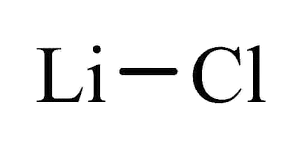Lithium Battery & Electrolyte Chemicals
Pharmaceutical & Fine Chemicals

Lithium chloride, an inorganic compound, has various industrial applications owing to its unique properties.
Product:
Lithium Chloride
CAS:
7447-41-8
Synonym:
Chlorolithium; Hydrochloric acid lithium salt
Structure:

Appearance
Colorless crystals or powder
Boiling point
1360 °C
Density
2.07 g/cm³
Melting point
613 °C
Molecular Weight
42.4
Purity
≥99%
Refractive index
1.662
A few of the grades available are listed below:



Lithium chloride, an inorganic compound, has various industrial applications owing to its unique properties. Here's a list of some of its industrial uses: